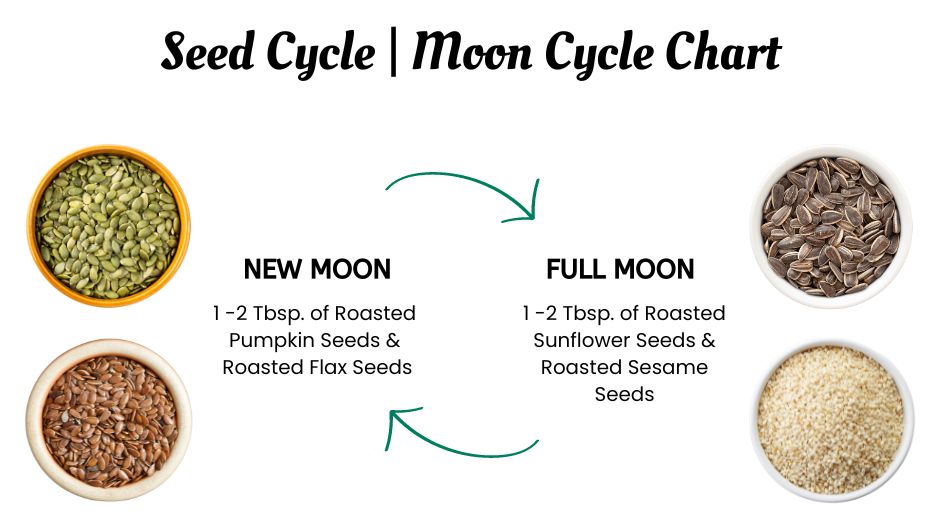Seed cycling is a natural way to balance hormones, support ovulation, and prepare the body for implantation by consuming specific seeds during different phases of the menstrual cycle (or in case of IVF, before and after embryo transfer).
🌿 Phase 1: Follicular Phase (Day 1 to Ovulation or Before Embryo Transfer)
✔ Seeds to Eat: Flaxseeds & Pumpkin Seeds (1 tbsp each per day)
✔ Why?
- Flaxseeds help regulate estrogen levels and support egg quality
- Pumpkin seeds are rich in zinc, essential for progesterone production later
- Both contain Omega-3 fatty acids, which improve uterine blood flow
✅ How to Eat?
- Add to smoothies, sprinkle over dosa batter, or mix with curd
- Dry roast and eat as a snack
- Blend into nut butter or chutneys
⛔ Avoid processed flaxseed oil – use whole seeds for best results
🌼 Phase 2: Luteal Phase (Post-Ovulation or After Embryo Transfer)
✔ Seeds to Eat: Sesame Seeds & Sunflower Seeds (1 tbsp each per day)
✔ Why?
- Sesame seeds boost progesterone, which is critical for implantation
- Sunflower seeds are rich in Vitamin E & selenium, reducing oxidative stress and supporting the uterine lining
- These seeds prevent inflammation and help in embryo attachment
✅ How to Eat?
- Mix into coconut chutney
- Sprinkle on idlis, chapati, or salads
- Blend into energy balls with jaggery
⛔ Avoid excessive sesame if prone to acidity
⏳ How Long to Follow Seed Cycling?
- For natural conception: Start seed cycling from day 1 of your menstrual cycle
- For IVF/FET cycles:
- Follow Flaxseeds & Pumpkin Seeds until embryo transfer
- Switch to Sesame & Sunflower Seeds after transfer
🌟 Final Tips
✅ Use organic, raw, or lightly roasted seeds
✅ Drink plenty of water to aid digestion
✅ Continue post-transfer seeds throughout the 2-week wait (2WW) for better implantation chances
Disclaimer
The information provided in this blog is for educational and informational purposes only and is not intended as medical advice. While every effort has been made to ensure accuracy, the content is based on general research, nutritional principles, and personal insights.
Individual health conditions, fertility treatments, and dietary needs vary from person to person. Always consult with your fertility specialist, doctor, or a registered dietitian before making any changes to your diet, supplements, or treatment plan, especially during fertility treatments like IVF, IUI, or embryo transfer.
This blog does not claim to diagnose, treat, cure, or prevent any medical conditions. The author and publisher are not responsible for any adverse effects resulting from the use of the information provided.
If you have any specific medical concerns, please seek professional medical advice from a qualified healthcare provider.

Comments
Post a Comment